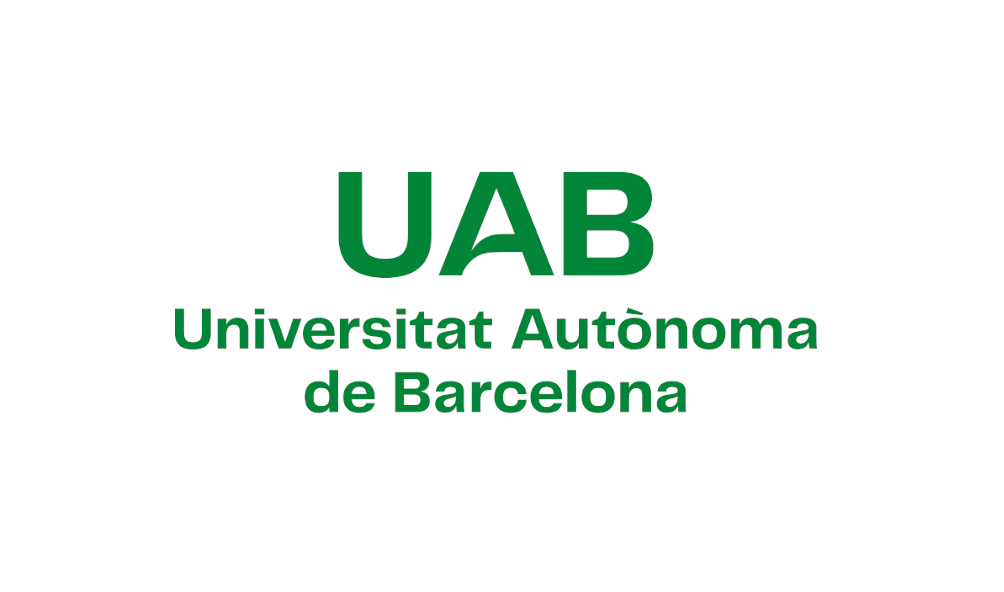El management com a pràctica
La pràctica del management es caracteritza per la seva ambigüitat. [...] Això deixa per als directius, en la majoria dels casos, els temes més complicats, els problemes espinosos, les relacions difícils. [...] Una directiva d'èxit d'una important companyia aèria em descrivia el seu marit MBA amb aquestes paraules: "Té la tècnica, pensa que en sap més. Però està frustrat perquè no n'entén les complexitats ni les polítiques. Pensa que té la resposta però es frustra en veure que és incapaç de fer-hi res". Mai no ha après management a l¿escola de negocis.
Si el management fos una ciència o una professió, el podríem ensenyar a persones sense experiència. Però no és ni una cosa ni l'altra.
EL MANAGEMENT NO ÉS UNA CIÈNCIA. La ciència consisteix en el desenvolupament d¿un coneixement sistemàtic per mitjà de la recerca. Difícilment el management té aquesta finalitat. No és, ni tan sols, una ciència aplicada, ja que aquesta continua essent una ciència. Certament, el management aplica la ciència: els directius han de fer servir tots els coneixements que poden obtenir, tant de les ciències com d¿altres procedències. Però el management és més un art, que es basa en la "perspicàcia", la "visió", la "intuïció". (Peter Drucker va escriure el 1954 que "els dies del directiu ¿intuïtiu¿ són comptats" [1]. Mig segle més tard encara estem comptant). I gran part del management és destresa, en el sentit que es basa a aprendre de l'experiència, en l'ofici. Això vol dir que consisteix tant a actuar per pensar com a pensar per actuar.
Si barregem una bona dosi de destresa amb una certa quantitat d'art i ciència, obtindrem com a resultat una professió que és, sobretot, una pràctica. No existeix "la millor manera" de dirigir; tot depèn de la situació.
Per tant, el management efectiu es produeix quan l'art, l'habilitat i la ciència es troben. Però en una classe amb estudiants sense experiència directiva, aquests tres elements no es poden trobar, no hi ha res a fer. Linda Hill (1992) escriu al seu llibre sobre les persones que volen ser directius que "han d'haver actuat com a directius abans d'entendre en què consisteix aquest rol" [2]. En altres paraules, si no hi ha experiència, no hi pot haver habilitat: els estudiants inexperts no poden entendre la pràctica . Quant a l'art, res no impedeix que sigui discutit, fins i tot admirat, en una classe convencional d'MBA. Però la inexperiència dels estudiants impedeix que sigui apreciat. Només el poden contemplar com ho fa qui no és artista ¿observar-lo sense entendre com s'ha produït.
Això deixa la ciència, que és en què consisteix fonamentalment la formació d'MBA convencional, en una mera anàlisi. És per això que els típics estudiants d'MBA quan es graduen tenen la impressió que el management consisteix en l'anàlisi, concretament en la presa de decisions sistemàtiques i la formulació d'estratègies deliberades. Aquesta és una visió reduïda i, en darrera instància, distorsionada del management, que ha fomentat dos estils disfuncionals a la pràctica: l'estil calculador (massa analític) i l'heroic (art fictici). Més endavant, aquests dos estils es contrasten amb un estil més basat en l'experiència, denominat atraient tranquil i relacionat, implicador i inspirador.
EL MANAGEMENT NO ÉS UNA PROFESSIÓ. S'ha dir que l'enginyeria no és tant una ciència o una ciència aplicada com una pràctica per dret propi (Lewin, 1979) [3]. Però l'enginyeria aplica molta ciència, codificada i certificada per a la seva efectivitat. I també es pot considerar una professió, la qual cosa significa que es pot ensenyar abans de practicar-la, fora de context. En cert sentit, un pont és un pont, o almenys l'acer és l'acer, encara que el seu ús s'hagi d'adaptar a les circumstàncies concretes. El mateix es pot dir de la medicina: moltes malalties estan codificades com a síndromes estàndards que cal tractar seguint unes tècniques específiques. Però no es pot dir el mateix del management (Whitley, 1995:92) [4]. Poca de la seva pràctica s'ha pogut codificar amb precisió, i menys encara certificar-ne l'efectivitat. Per tant, el management no es pot considerar una professió ni ensenyar-se com a tal.
Com que l'enginyeria i la medicina tenen molts coneixements codificats que es poden aprendre formalment, l'expert format gairebé sempre pot donar uns millors rendiments que el profà en la matèria. No passa el mateix amb el management. Pocs de nosaltres confiaríem en un enginyer o en un físic intuïtiu, que no tingués una formació reconeguda. Tanmateix, hem de confiar en directius de tota mena que mai de la vida han assistit a una classe de management (i fins i tot tenim sospites d'alguns que s'hi han passat dos anys).
Des de la segona dècada del segle xx, quan Frederick Taylor (1911) [5] escrivia sobre "la millor manera" de dirigir i Henri Fayol (1916/1984) [6] sostenia que "la capacitat directiva es pot i s'ha d'adquirir igual que la capacitat tècnica a l'escola, i després al taller", hem estat buscant el sant grial del management com a ciència i com a professió. Al Regne Unit, un grup anomenat Management Charter Initiative va intentar avançar en aquest sentit i va proposar la certificació dels directius, però no entrava a explicar si el management era una professió, sinó que més aviat ho donava per descomptat. Com el seu director va declarar en un diari, l'MBA "és l'única qualificació autènticament global, l'única llicència per fer negocis a escala internacional" (Watts, 1997:43) [7].
Aquesta afirmació és absurda, i el grup ha fracassat en el seu intent. És hora d'afrontar un fet clar: després de mig segle intentant-ho, totes les valoracions enraonades que s¿han fet sobre el tema han conclòs que el management s'ha convertit en quelcom que no és ni una ciència ni una professió. Està profundament arrelat en les pràctiques de la vida quotidiana. Hauríem de potenciar aquest fet, no menysprear-lo. I hauríem de preparar directius que estiguin profundament arrelats en la vida del lideratge, no professionals que m'estiguin al marge.
Els camps de treball esmentats anteriorment es poden dividir entre aquells en què la persona que hi intervé realment "sap més" que els seus destinataris, i aquells en què actuar com l'expert que en sap més és un entrebanc. Anant al quiròfan, seran pocs els pacients que qüestionin la tasca del cirurgià. (Podríeu tallar una mica més avall, sisplaui?) Per molt dolent que sigui el tracte amb el malalt, acceptem que el cirurgià en sap més. Però un mestre d'escola que actua partint de la base que en sap més pot impedir l'aprenentatge de l'alumne. Ensenyar en una escola és una activitat de facilitació, més relacionada a fomentar l¿aprenentatge que a impartir docència.
Dirigir també és una activitat de facilitació. És cert que els directius han de saber moltes coses i sovint han de prendre decisions fonamentades en aquests coneixements. Però, sobretot en les grans organitzacions i en les que es dediquen a "treballar amb els coneixements", els directius han de dirigir millor, perquè d'altres puguin saber més i, en conseqüència, actuar millor. Han de fer treure el millor que tenen els altres. La idea que el cap ho fa tot, suggerida per la gran estratègia, que després guia la manera com els altres l'han d'implementar, sovint és un mite que encara resta de la producció en massa de béns simples. El nostre objectiu és crear un entorn en el qual els estudiants aprenguin a afrontar problemes difícils i complexos. Els estudiants aprenen com cal emetre judicis, prendre decisions i assumir responsabilitats¿ ("Missatge del degà", pàgina web de la Harvard Business School, 2003).
Com que els professors de grau de les escoles poden traslladar fàcilment les seves habilitats d'una classe a una altra, encara se'ls pot anomenar professionals. Però no així els directius, que difícilment poden aplicar les seves habilitats d'una funció a una altra dintre de la mateixa organització, i menys encara si es tracta de diferents organitzacions o sectors. En altres paraules, els coneixements del context no poden transportar-se tan fàcilment en management com en educació, enginyeria o medicina. Això explica que molts directius que han triomfat en un lloc fracassin en d'altres (la qual cosa difícilment els passa als professors, als enginyers o als físics, sempre que conservin les capacitats que posseeixen).
UN DIRECTIU CONVIDAT? Imaginem el cas d¿un directiu convidat. La idea mateixa sembla absurda. Com pot venir algú de fora i dirigir una mica? El directiu ha de tenir una comprensió profunda del context. En canvi, acceptem els professors substituts que vénen a fer la classe un dia, i els Metges sense Fronteres que creen hospitals per unes hores. I no els directius temporals?
L'exemple més obvi resulta instructiu: un director convidat. Uns pocs assajos, i els músics ja poden anar a tocar a les sales de concerts més prestigioses del món. Per una senzilla raó: tot l'exercici està summament programat. És Mozart qui mou les cordes, i tothom interpreta segons la seva partitura, tan orquestrada. Tindrem un management professional quan les organitzacions arribin a estar tan programades com l¿orquestra simfònica, i interpretin les seves estratègies com les partitures de Mozart, amb uns empleats obedients i uns clients asseguts cada un a la seva fila, que responguin en el moment just.
La pràctica del management es caracteritza per la seva ambigüitat. Això és degut al fet que, malgrat l'ús popular de la metàfora del director a la tarima, aquesta no és gens apropiada en aquest cas (almenys durant l'actuació, no necessàriament durant els assajos; v . Mintzberg 1998) [8]. La majoria del treball que es pot programar en una organització ha de concernir directament als seus directius; es pot delegar als especialistes perquè el portin a terme. Això deixa per als directius, en la majoria dels casos, els temes més complicats, els problemes espinosos, les relacions difícils. I això és el que fa que la pràctica del management sigui fonamentalment ¿soft¿ i explica per què determinades etiquetes com l¿experiència, la intuïció, el judici i la saviesa s'utilitzen tan sovint per definir-lo. Una directiva d'èxit d'una important companyia aèria em descrivia el seu marit MBA amb aquestes paraules: "Té la tècnica, pensa que en sap més. Però està frustrat perquè no n'entén les complexitats ni les polítiques. Pensa que té la resposta però es frustra en veure que és incapaç de fer-hi res". Mai no ha après management a l¿escola de negocis.
Henry Mintzberg és Cleghorn Professor d'Estudis de Management de la Facultat de Management de la McGill University.
[1] Drucker, Peter F. The Practice of Management. Nova York: Harper, 1954.
[2] Hill, Linda A. Becoming a Manager Mastery of a New Identity. Boston: Harvard Business School Press, 1992.
[3] Lewin, Douglas. On the Place of Design in Engineering. Design Studies 1, núm. 2 (1979): 113-117.
[4] Whitely, Richard. Academic Knowledge and Work Jurisdiction in Management. Organization Science 16, núm. 1 (1995): 81-105.
[5] Taylor, Frederick Winslow. The Principles of Scientific Management. Nova York: Harper, 1911.
[6] Fayol, Henri; Gray, Irwin. General and Industrial Management. Ed. rev. Nova York: Institute of Electrical and Electronics Engineers, 1984. (Publicat inicialment en francès el 1916.)
[7] Watts, Robert. Sunday Telegraph. 18 de juliol de 1997, 43.
[8] Mintzberg, Henry. Covert Leadership: The Art of Managing Professionals¿. Harvard Business Review (novembre-desembre de 1998): 140-147.
Managers Not MBAs: A Hard Look at the Soft Practice of Managing and Management Development. De Henry Mintzberg, San Francisco: Berrett-Koehler Publishers Inc., 2004.






























És obligatori estar registrat per comentar.
Fes clic aquí per registrar-te i rebre la nostra newsletter.
Fes clic aquí per accedir.